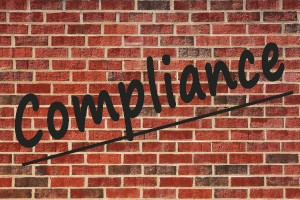As the workings of the Energy Related Products (ErP) Directive progress and 26th September draws closer for space and water heater compliance (see our previous blog), it is interesting to take a look at the profile of the organisation that is responsible for enforcement of the Directive in the UK.
The National Measurement & Regulation Office (NMRO) is a government executive agency which is sponsored by the Better Regulation Delivery Office and the Department for Business, Innovation & Skills. It describes its mission as seeking to “simplify technical regulation for the benefit of British business.” This is certainly encouraging. After all, European Directives are not always known for their clarity and user friendliness!

The objectives of the ErP Directive are basically sound and necessary. Even if you set aside the need to reduce energy usage for environmental reasons, there are also huge cost and social benefits to be gained from increased energy efficiency. To approach this challenge at an early stage, to minimise energy usage through product design, technology and materials is akin to carrying out preventative medical treatment to reduce the chance of illness. It makes sense!
Problems that occur with regulations on industry, business or in other walks of life are frequently not from the goals that the regulators wish to achieve but because of the ways their requirements are written, interpreted and enforced. Information on the Gov.UK site about placing energy related products on the UK market (https://www.gov.uk/placing-energy-related-products-on-the-uk-market) describes the NMRO’s remit as follows:
 “NMRO will assist industry to comply with the regulations by working with stakeholders and providing the best information and advice possible. In all cases of non-compliance the full suite of possible actions will be considered and the most appropriate selected in order to help those aiming to comply and pursue vigorously those that intend to flout compliance, including possible prosecution, details of which can be found in the prosecution policy.”
“NMRO will assist industry to comply with the regulations by working with stakeholders and providing the best information and advice possible. In all cases of non-compliance the full suite of possible actions will be considered and the most appropriate selected in order to help those aiming to comply and pursue vigorously those that intend to flout compliance, including possible prosecution, details of which can be found in the prosecution policy.”
This indicates that the approach being taken is not heavy handed. Responsible manufacturers of energy related products are well aware of the increasing importance of energy efficiency in their market sectors and are already well advanced in meeting and exceeding the compliance targets set by the Directive. Naturally, at a time when energy costs can be highly volatile, offering products that demonstrate the maximum energy efficiency gives you a competitive edge.
So the government and the EU are, for a large part of business and industry at least, preaching to the converted. It follows then that if the NMRO supports business as it is experienced in doing, cutting through red tape and exercising its commitment to simplify technical regulations, implementation of the ErP Directive in the UK should be successful, benefiting both energy related product suppliers and end users.